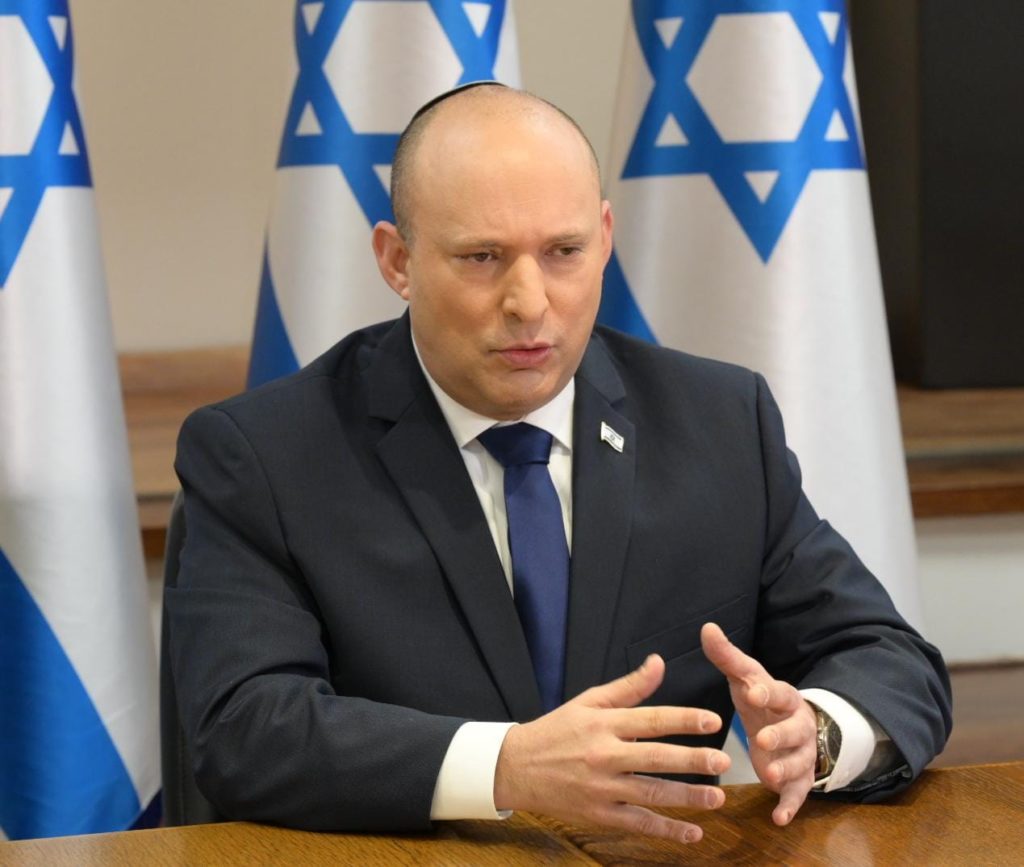
Israel this weekend laid out a redline that should not be crossed to achieve a renewed Iran nuclear deal—removing Iran’s Islamic Revolutionary Guards Corp (IRGC) military group from the Foreign Terrorist Organization list (FTO). The Jewish state is worried the United States may do it anyway. “We are very concerned about the United States’ intention to give in to Iran’s outrageous demand and remove the IRGC from the list of terrorist organizations, the FTO,” Israeli Prime Minister Naftali Bennett’s office quoted him as saying. The Israeli leader made the unusually strong words about the US, its closest ally, in a Sunday cabinet meeting.
“Even now, the IRGC terrorist organization is trying to murder certain Israelis and Americans around the world,” he said. “Unfortunately, there is still determination to sign the nuclear deal with Iran at almost any cost—including saying that the world’s largest terrorist organization is not a terrorist organization. This is too high a price.”
Israel’s concern stems from a report by Axios that the US is considering the Iranian demand to remove the IRGC, arguably Iran’s most powerful entity and one responsible for terrorism across the world, from the FTO list and the list’s related sanctions as part of a renewed Iran nuclear deal with the major world powers. The US added the IRGC to the FTO list in 2019, having withdrawn from the nuclear accord a year earlier.
Given the IRGC’s extensive activity in the military and proxy militant realm, as well as its expanded influence in Iran’s economy, it’s not surprising that the Islamic Republic would want sanctions against the group reduced. It is somewhat surprising the US might agree.
“The IRGC are the largest and most murderous terrorist organization in the world. Unlike ISIS, or other organizations, it is backed by a state,” said Bennett. “This is not just an Israeli problem. Other countries—allies of the United States in the region—face this organization day in and day out. In recent years, they have fired missiles at peaceful countries and launched UAVs at Israel and other countries.”
According to Axios, even if the US would make the move, the IRGC would still be on a separate—albeit less significant—terror list and still under sanctions. In exchange for removing the stronger terror designation from the IRGC, the report said Iran would provide a public commitment to cut down its violent activity in the region.
Bennett, in a joint statement on Friday with Israeli Foreign Minister Yair Lapid, panned the idea of believing Iranian promises in such a trade.
“The attempt to delist the IRGC as a terrorist organization is an insult to the victims and would ignore documented reality supported by unequivocal evidence. We find it hard to believe that the IRGC’s designation as a terrorist organization will be removed in exchange for a promise not to harm Americans,” Israel’s top two leaders said in the joint statement.
“The fight against terrorism is a global one, a shared mission of the entire world. We believe that the United States will not abandon its closest allies in exchange for empty promises from terrorists.”
Publicly, the US has been coy about the possible move. In comments last Wednesday in response to a reporter’s question on the matter, US State Department Spokesperson Ned Price evaded specifics when talking about the ongoing negotiations to restrict Iran’s nuclear program in exchange for sanctions relief.
“It’s not something I can speak to beyond the fact that there are two key issues at the heart of these negotiations,” said Price in comments published by the State Department. “On the one hand, you have the nuclear commitments that Tehran would need to adhere to were it to resume full compliance with the [nuclear deal]. On the other side of the ledger, you have the sanctions relief… So the issue of sanctions relief is really and has been at the heart of these negotiations, but we’re just not going to speak to specifics at this stage.”
However, Price made it clear that the talks are in an advanced stage with a short timeline remaining. “We are close to a possible deal, but we’re not there yet. From our end, we are not going to characterize the number or the nature of these remaining issues precisely because we are at a very delicate stage,” said Price. “We want to do everything we can to see to it that a mutual—well, to determine if a mutual return to compliance with the JCPOA is in the offing, and it would need to be in the offing in the short term… We are going to find out in the near term whether we’re able to get there.”
Getting there, at the cost of delisting the IRGC from the top US terror list, is unacceptable for Israel. And they won’t accept it, even if the US does.
Bennett issued this warning on Sunday: “Even if this unfortunate decision is made, the State of Israel will continue to treat the IRGC as a terrorist organization, and will continue to act against it as we do against terrorist organizations. As usual, our future will be determined by our actions, not words.”
(By Joshua Spurlock, www.themideastupdate.com, March 20, 2022)
